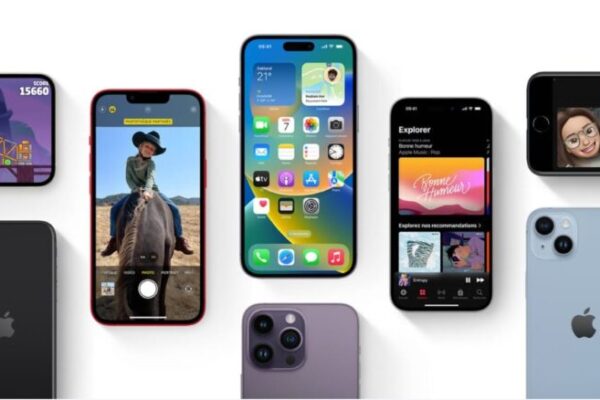Buying a laptop from Amazon is usually safe, but it’s important to be cautious. Amazon has various sellers, and they don’t all have the same quality. If you check the seller and the laptop carefully, you can find a good deal and have a positive experience. If you want to know if it’s safe to buy a laptop from Amazon and what to be careful about, keep reading!
How Can Amazon Sellers Be Verified?
Whenever you buy something online, it’s crucial to check the seller, even on big platforms like Amazon. Just because Amazon is a major seller doesn’t mean everything on the site is tested or guaranteed by them. Surprisingly, not all products on Amazon are sold by Amazon itself. So, look into who is selling the item. It’s best to buy from Prime sellers, who are part of Amazon. This way, your item comes from an Amazon warehouse and is backed by their support and guarantees. Be cautious because any store can create a webpage on Amazon, and if they aren’t part of the official system, your purchase might not be as secure. Stick with trustworthy sellers for a more reliable shopping experience.
How Can You Test the Laptop Straight From Amazon?
Finding a trustworthy seller does not guarantee that you will receive a high-quality laptop.
The issue is that there are many different types of laptops, and not all of them are appropriate for your needs, your budget, or both.
It’s important to understand what you’re actually getting, and a good checklist is very helpful.
1. Manufacturer Comparison
The best choice is to begin with well-known laptop manufacturers. It’s essential to know who made the laptop you’re interested in. Trustworthy brands in the industry include Acer, Apple, Asus, Dell, HP, Lenovo, Microsoft, MSI, Razer, Samsung, and Toshiba. While this is only a partial list, it’s a good starting point. If you encounter a laptop from a different manufacturer, you can research their reputation online to make an informed decision.
2. Pay close attention to the parts
It’s helpful to know the manufacturer, but understanding what’s inside the laptops you’re considering is crucial. The more you know about laptop components and your specific needs, the better your chances of finding a good deal. By evaluating a laptop based on its parts and checking the seller, you can ensure it suits your intended use. Plus, reliable customer support can assist with any shipping or laptop issues. Focus on these five key parts: CPU, GPU, RAM, hard drive, and operating system. They determine a laptop’s performance and suitability for your requirements.
Central Processing Units
When you’re shopping for a laptop, the most important thing to consider is the CPU, or the central processor. Good-quality processors usually come from Intel or AMD. It’s smart to check the brand first. If you want to know more about a laptop’s processor, you can find information online. The age of the processor matters a lot. It’s best to have a well-known processor that’s no older than three years. Keep in mind that even new laptops might have older processors. If you want to understand more about what different processors do, research details like clock speeds, cache, and architecture. It might seem complicated, but starting with the information you just read can help you go a long way in your research.
GPUs
The GPU, or graphics processing unit, which is the second most important part of a laptop. Let’s keep this easy, even though it can get a bit complex. While all computers have a graphics processor, the GPU isn’t always a separate part. Some laptops, especially cheaper ones, integrate graphics processing into the CPU. In these cases, you’re not specifically evaluating the GPU; the CPU handles both regular tasks and graphics processing. But in better laptops, you’ll find a dedicated GPU, separate from the CPU. This GPU has its own specifications that you should compare. Here’s a simple tip: if you want to play intense games or do video editing, choose a laptop with a dedicated GPU. If that’s not what you’re into, you don’t need to worry too much about GPU details.
RAM
Your laptop’s RAM, or memory, is what allows you to do many tasks at once. RAM is often called a computer’s short-term memory. A faster computer usually has more RAM, and if a computer has less RAM, it runs slower. Don’t worry too much about the type of RAM; instead, focus on the laptop’s RAM capacity and whether it can be upgraded. How much RAM you need depends on what you do with your computer. At the time this article was written, 8GB was enough for basic use. But for tasks like video editing and gaming, you need at least 16GB. Operating systems also become more demanding over time, requiring more RAM. That’s why having upgradeable RAM is so important; it allows your laptop to keep up with newer software.
Disk drives
The hard drive in your computer is like a storage space for all your data. While they don’t impact performance as much as other components, hard drives are still important. When it comes to hard drives, there are two main things to think about.
Firstly, solid-state hard drives (SSDs) work much faster than other types. Although most computers now come with SSDs, some new and budget laptops still use slower hard drives.
Secondly, consider the capacity of the hard drive. For the average user, a 1TB (terabyte) hard drive is usually enough. But if you have lots of images or videos, you might need a larger one. If you run out of space, you can also use external storage like flash drives or cloud accounts to store your files.
Operating System
The operating system is a crucial consideration when buying a laptop because it significantly influences your overall user experience. It’s a major factor behind online buyers’ regret. There are several operating systems, but three dominate the laptop world.
Windows is the most popular. Currently, Windows 10 and 11 are widely used, and having an outdated version can cause problems.
Mac OS is another major system, exclusive to Apple computers. Any MacBook you buy will come with Mac OS.
Chrome OS is the third most common for laptops but is specifically designed for Chromebooks. These laptops are budget-friendly and meant for light use, making them affordable. However, they might not meet all your needs, depending on how you plan to use your laptop.
3. Review the warranties and sales conditions.
As you can see, reading the laptop’s specifications is the most crucial thing you can do to safeguard yourself when purchasing a laptop from Amazon.
You’ll be in good shape as long as you follow through with that, but you should also research the terms of the sale.
Ask yourself a few questions to determine how to keep out potentially unsavory vendors.
What are the return guidelines?
It’s indeed a constant concern. Shady retailers often have strict no-returns policies, leaving you with little recourse if the laptop doesn’t meet your expectations. Stick to vendors with flexible return policies to avoid this issue. While most Prime sellers usually have such policies, it’s wise to double-check. Also, consider unique shipping situations, as high shipping costs or long delivery times, especially from distant continents, can spoil a good deal, especially if you’re on a tight deadline.
Is the laptop used?
Make sure the page contains a commitment that assures you of receiving a new laptop because some sellers might be hesitant to do so.
It’s okay to buy used laptops, but you should be aware of the risk.
Most laptops only have a one- to three-year warranty, and after five years of production, most laptops are no longer useful.
Always check a used laptop’s age several times.
Additionally, look for guarantees that will shield you from problems with the used laptop.
Is there any warranty for the laptop?
Warranty is another important factor to consider. Most major laptop manufacturers offer a one-year limited hardware warranty, which you should expect if you’re buying a new laptop. However, when it comes to used laptops, warranties can vary widely. Some vendors might offer standard warranties and charge extra for extended coverage. This means you could end up spending a lot more money on a warranty that you may or may not need. Take some time to examine the warranties offered. Make sure you fully understand the terms and what exactly is covered before making a decision.
Final Thoughts on Is Buying a Laptop From Amazon Safe?
Buying a laptop from Amazon can be safe as long as you take certain precautions. It is important to read reviews, check the seller’s ratings and reputation, and ensure that you are purchasing from a verified seller. Additionally, it is recommended to use a secure payment method and keep track of your order to ensure that it arrives as expected. While there may be some risks associated with buying a laptop online, Amazon provides certain protections to buyers and has a reputation for reliable service. Ultimately, by being vigilant and taking the necessary steps to protect yourself, you can safely purchase a laptop from Amazon and enjoy the convenience of online shopping.
Frequently Asked Questions on Is it safe to buy a laptop from Amazon (FAQs)
Are there any risks associated with buying a laptop from Amazon?
Like any online purchase, there are risks associated with buying a laptop from Amazon. These risks include receiving a damaged or defective product, the laptop not being as described, or receiving a counterfeit product. However, Amazon provides certain protections to buyers and has a reputation for reliable service.
Can I return a laptop purchased from Amazon?
Yes, you can return a laptop purchased from Amazon within the specified return period, which is usually 30 days. However, it is important to note that some laptops may have restocking fees or other conditions associated with their return.
How can I ensure that the laptop I am buying from Amazon is genuine?
To ensure that the laptop you are buying from Amazon is genuine, you should purchase from a verified seller and check the seller’s ratings and reputation. You can also check the packaging and documentation to ensure that they match the manufacturer’s standards.
What payment methods are safe to use when buying a laptop from Amazon?
Amazon provides several secure payment methods, including credit cards, debit cards, and Amazon gift cards. It is recommended to avoid using cash or checks when purchasing a laptop online. Additionally, you should ensure that the payment method you choose is secure and protected against fraud.




![What is Small Red Button in Middle Laptop Keyboard for? [TrackPoint Explained]](https://mobizilla.pk/wp-content/uploads/2023/10/24-1-600x396.jpg)
